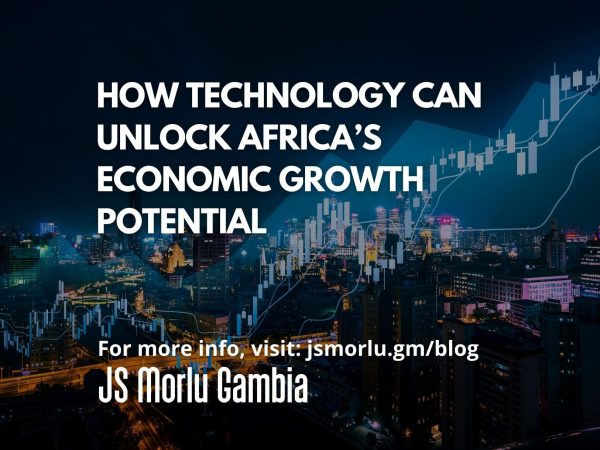Africa is a developing continent, but its unstable economic state continues to put the already vulnerable regions, such as the rural areas, in a further socio-economic decline.
The global coronavirus pandemic has threatened economic development and growth in numerous ways. Data from the World Bank suggests that the Sub-Saharan Africa region is heading towards the state of recession for the first time in 25 years. The gross domestic product (GDP) growth is projected to fall sharply, particularly in South Africa, Nigeria and Angola, which are the region’s largest economies.
However, there’s great potential to overcome the economic challenges, and the answer lies with digitalisation and technology.
Adopting digital technology innovations is essential in building economic development and growth frameworks that will open up opportunities for all countries in Africa. In fact, digital literacy and implementation have become high-priority solutions for any country that’s looking to shift its economic trajectory and boost the lives of millions of citizens.
We’ve seen many African countries leading digital transformation with the rise of tech hubs and start-ups. The goal of ensuring that this emerging market thrives and impacts economic development and growth, it has to expand beyond niche circles.
And, that’s where infrastructure comes in.
Prioritising infrastructure
Digital transformation in South Africa is an ongoing journey that’s only accessible to a few, which emphasises the country’s glaring inequalities. Infrastructure is the bridging gap between digital innovation and access divide, and, therefore, prioritising infrastructure development can accelerate efforts in unlocking economic development in Africa.
This refers to all types of infrastructures which play a role in the processes of eradicating socio-economic challenges. For example, transportation, water and sanitation, electricity, energy, as well as education and telecommunications, and information and communications technology infrastructure.
By doing so, businesses will have access to other businesses and individuals in their respective sectors. This will help businesses connect, engage and exchange digital initiatives, which will benefit the economy of the countries they live in.
Investment procurement
The acquisition of funds used to build and refurbish adequate infrastructure can be significant in creating needed change, and encourage a better future for Africans. Decision-makers have a role to play in driving partnerships with leading investors to gain funds to be channelled towards infrastructure development, growth and sustainability.
The Development Bank of Southern Africa has a wide portfolio of funding operations as well as project implementation and digital programme support activities. These are specifically designed with the purpose of delivering infrastructure in South Africa and the rest of the African continent. This, in turn, promotes inclusive and sustainable growth for beneficiaries.
Investment in digital skills training
The availability and accessibility of the previously mentioned infrastructure can open up opportunities for inventment in both theoretical and practical digital skills. State-owned entities have the potential to work with industry leaders and come up with digital skills development training, and solutions, which can be provided to citizens. More often than not, citizens are sitting with innovative ideas but lack access to the right decision-makers who can make those ideas a reality. These untapped ideas typically lead to innovative solutions.
Digitised public services
During the pandemic, countries all over the world found themselves tasked with high-demand of digitised services. The majority of African countries such as South Africa and Rwanda, launched digital health and digital education services to provide citizens with access to online healthcare and learning. This is proof that we are more than capable of delivering necessary services to a market that is in need of such services.
As an ongoing journey in a preparation stage, there’s plenty of room for growth. The success in this regard lies in the establishment of strategies which are set to equally benefit all parties involved.
Final thoughts
Technology, if used to its fullest potential, has the ability to change business operations, and drive economic development and growth in countries that need this the most. Africa is a developing continent with growth potential, and technology is the key to unlocking that and guaranteeing a better future for the population in each country.
Original Souce: Development Bank of Southern Africa
